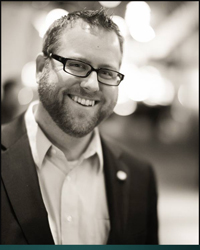 Since moving to the Charleston area in 1999, Brad DeVos has worked for two engineering firms and owned a consulting company. As an electrical designer and sustainability consultant he was involved in over 250 construction projects throughout the Southeast.
Since moving to the Charleston area in 1999, Brad DeVos has worked for two engineering firms and owned a consulting company. As an electrical designer and sustainability consultant he was involved in over 250 construction projects throughout the Southeast.
In 2009, Brad turned his attention to economics, business, and philanthropy, and began working with the Bastiat Society in Charleston, SC as their Managing Director. In the spring of 2011, he accepted the position of Executive Director and was tasked with creating a network of independent Bastiat Society chapters that could run with minimal oversight and guidance from the international office in Charleston. Since then, the Society has grown to over 20 chapters around the world hosting over 120 educational-based events annually.
He earned a B.S. in Economics and a B.A. in Urban Studies from the College of Charleston, as well as an associates degree in Computer Aided Design and Drafting from the ITT Technical Institute.
Brad is a member of the historic Mont Pelerin Society, a L.E.E.D. Accredited Professional, a graduate of the Atlas Leadership Academy’s Think-Tank MBA program, a member of the Foundation for Economic Education’s Faculty Network, and is an appointed member of the South Carolina Advisory Committee to the U.S. Commission on Civil Rights.
He lives on John’s Island, South Carolina with his wife, daughter, and dog.
Brad spoke to the Columbia Economics Club on December 7, 2016, in his talk entitled, “Peace Through Prosperity: The Role Business Plays in Advancing a Free Society”.
To learn more about Brad, please visit the Bastiat Society: http://www.bastiatsociety.org/devos.php
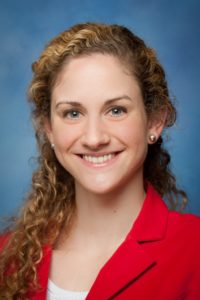 Katherine Restrepo is the Director of Healthcare policy at the John Locke Foundation. Before joining the John Locke Foundation, she interned at the Cato Institute under the direction of Michael Cannon, Director of Health Policy Studies.
Katherine Restrepo is the Director of Healthcare policy at the John Locke Foundation. Before joining the John Locke Foundation, she interned at the Cato Institute under the direction of Michael Cannon, Director of Health Policy Studies. 
 Since moving to the Charleston area in 1999, Brad DeVos has worked for two engineering firms and owned a consulting company. As an electrical designer and sustainability consultant he was involved in over 250 construction projects throughout the Southeast.
Since moving to the Charleston area in 1999, Brad DeVos has worked for two engineering firms and owned a consulting company. As an electrical designer and sustainability consultant he was involved in over 250 construction projects throughout the Southeast.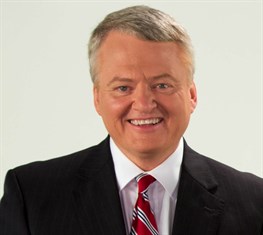 Curtis M. Loftis, Jr. is the incumbent State Treasurer for South Carolina. He was elected State Treasurer in 2010 — winning all 46 counties in his first bid for public office — and was re-elected in 2014. Mr. Loftis owns several businesses and is the founder and sole benefactor of the Saluda Charitable Foundation, a charity that operates in Ukraine, Bolivia and Haiti. He is a resident of West Columbia, SC and is a 1981 graduate of the University of South Carolina.
Curtis M. Loftis, Jr. is the incumbent State Treasurer for South Carolina. He was elected State Treasurer in 2010 — winning all 46 counties in his first bid for public office — and was re-elected in 2014. Mr. Loftis owns several businesses and is the founder and sole benefactor of the Saluda Charitable Foundation, a charity that operates in Ukraine, Bolivia and Haiti. He is a resident of West Columbia, SC and is a 1981 graduate of the University of South Carolina.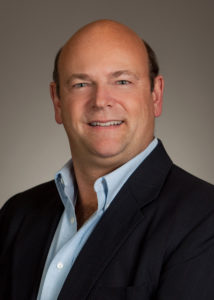 erry Ellig is a senior research fellow at the Mercatus Center at George Mason University and a former assistant professor of economics at George Mason University. He specializes in the federal regulatory process, economic regulation, and telecommunications regulation. Previously, Ellig was deputy director and acting director of the Office of Policy Planning at the Federal Trade Commission (FTC). He also served as senior economist for the Joint Economic Committee of the US Congress. Ellig received his MA and PhD in economics from George Mason University and his BA in economics from Xavier University.
erry Ellig is a senior research fellow at the Mercatus Center at George Mason University and a former assistant professor of economics at George Mason University. He specializes in the federal regulatory process, economic regulation, and telecommunications regulation. Previously, Ellig was deputy director and acting director of the Office of Policy Planning at the Federal Trade Commission (FTC). He also served as senior economist for the Joint Economic Committee of the US Congress. Ellig received his MA and PhD in economics from George Mason University and his BA in economics from Xavier University.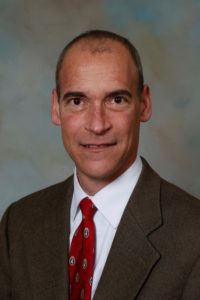
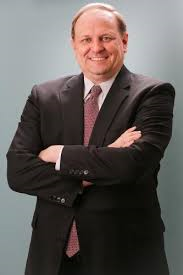 As senior Fellow and director of Legal Policy at the Manhattan institute, James Copland develops and communicates novel, sound ideas on how to improve America’s civil- and criminal-justice systems. He has testified before Congress as well as state and municipal legislatures; and has authored many policy briefs, book chapters, articles and opinion pieces in a variety of publications, including the Harvard Business Law Review and Yale Journal on Regulation, the Wall Street Journal, National Law Journal, and USA Today. Copland speaks regularly on civil- and criminal-justice issues; has made hundreds of media appearances in such outlets as PBS, Fox News, MSNBC, CNBC, Fox Business, Bloomberg, C-Span, and NPR; and is frequently cited in news articles in the New York Times, Washington Post, The Economist, and Forbes. In 2011 and 2012, he was named to the National Association of Corporate Directors “Directorship 100” list, which designates the individuals most influential over U.S. corporate governance. Prior to joining MI, Copland was a management consultant with McKinsey and Company in New York. Earlier, he was a law clerk for Ralph K. Winter on the U.S. Court of Appeals for the Second Circuit. Copland has been a director of two privately held manufacturing companies since 1997 and has served on many public and nonprofit boards. He holds a J.D. and an M.B.A. from Yale, where he was an Olin Fellow in Law and Economics; an M.Sc. in the politics of the world economy from the London School of Economics; and a B.A. in economics from the University of North Carolina at Chapel Hill, where he was a Morehead Scholar.
As senior Fellow and director of Legal Policy at the Manhattan institute, James Copland develops and communicates novel, sound ideas on how to improve America’s civil- and criminal-justice systems. He has testified before Congress as well as state and municipal legislatures; and has authored many policy briefs, book chapters, articles and opinion pieces in a variety of publications, including the Harvard Business Law Review and Yale Journal on Regulation, the Wall Street Journal, National Law Journal, and USA Today. Copland speaks regularly on civil- and criminal-justice issues; has made hundreds of media appearances in such outlets as PBS, Fox News, MSNBC, CNBC, Fox Business, Bloomberg, C-Span, and NPR; and is frequently cited in news articles in the New York Times, Washington Post, The Economist, and Forbes. In 2011 and 2012, he was named to the National Association of Corporate Directors “Directorship 100” list, which designates the individuals most influential over U.S. corporate governance. Prior to joining MI, Copland was a management consultant with McKinsey and Company in New York. Earlier, he was a law clerk for Ralph K. Winter on the U.S. Court of Appeals for the Second Circuit. Copland has been a director of two privately held manufacturing companies since 1997 and has served on many public and nonprofit boards. He holds a J.D. and an M.B.A. from Yale, where he was an Olin Fellow in Law and Economics; an M.Sc. in the politics of the world economy from the London School of Economics; and a B.A. in economics from the University of North Carolina at Chapel Hill, where he was a Morehead Scholar.  Competitive Enterprise Institute. His public policy research has covered a wide range of topics, including regulatory reform, free market environmentalism, antitrust law, and international finance and comparative economics. He spoke to the CEC on February 3rd, 2016 about “The Political Economy of Doer/Thinker Alliances”.
Competitive Enterprise Institute. His public policy research has covered a wide range of topics, including regulatory reform, free market environmentalism, antitrust law, and international finance and comparative economics. He spoke to the CEC on February 3rd, 2016 about “The Political Economy of Doer/Thinker Alliances”.
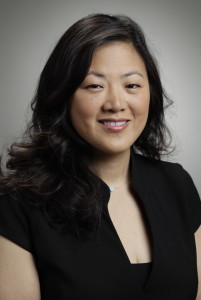 University spoke to the CEC on July 15th at the Palmetto Club. She spoke about pop culture and various movies which have helped spread economic understanding and “Rockonomix”, a national program that spreads interest in economics through parodies posted to YouTube.
University spoke to the CEC on July 15th at the Palmetto Club. She spoke about pop culture and various movies which have helped spread economic understanding and “Rockonomix”, a national program that spreads interest in economics through parodies posted to YouTube.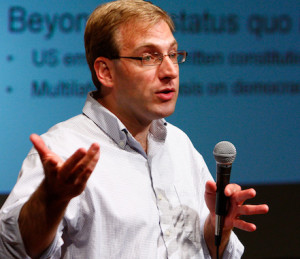 , April 27th, Nikolai G. Wenzel joined the CEC for lunch at the Palmetto Club. Dr. Wenzel talked on his topic “Caffeine, Evil Leprechauns, & Interest Rates: The Regulatory & Monetary Roots of the Financial Crisis of 2007.”
, April 27th, Nikolai G. Wenzel joined the CEC for lunch at the Palmetto Club. Dr. Wenzel talked on his topic “Caffeine, Evil Leprechauns, & Interest Rates: The Regulatory & Monetary Roots of the Financial Crisis of 2007.”